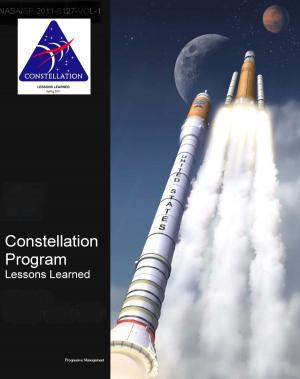Are Muslim Diaspora in the U.S. Vulnerable to Islamic Extremism? Four Terrorist Case Studies, Boston Bombers Tsarnaev, Analysis of Role of Governance, Economics, Religion, U.S. Homeland Involvement
Nonfiction, Social & Cultural Studies, Political Science| Author: | Progressive Management | ISBN: | 9781370345694 |
| Publisher: | Progressive Management | Publication: | March 18, 2017 |
| Imprint: | Smashwords Edition | Language: | English |
| Author: | Progressive Management |
| ISBN: | 9781370345694 |
| Publisher: | Progressive Management |
| Publication: | March 18, 2017 |
| Imprint: | Smashwords Edition |
| Language: | English |
This report has been professionally converted for accurate flowing-text e-book format reproduction. Recent actions in Europe have highlighted the ability of Muslim diasporas to conduct terrorist attacks against their adopted homeland. With an estimated 2.6 million Muslim diaspora in the United States and millions more seeking refuge from current conflicts, there is concern with Islamic extremists utilizing diaspora to conduct future attacks on the United States homeland. The purpose of this thesis is to determine if the Muslim diaspora in the United States are vulnerable to exploitation by Islamic extremists. A qualitative research approach is applied utilizing comparative case study methodology to evaluate select factors of governance, economics, religion, armed conflict, and United States involvement in the homeland of four Islamic extremists who have recently planned or conducted acts of terrorism against the United States.
CHAPTER 1 INTRODUCTION * Background * Assumptions * Definitions * Delimitations and Limitations * Conclusion * CHAPTER 2 LITERATURE REVIEW * The Radicalization Process * The Search for an Identity * Socio-Economic Deprivation * Social Interactions * Political Grievances * What Traits make a Population Vulnerable to Radicalization * Summary * CHAPTER 3 RESEARCH METHODOLOGY * Selection Criteria and Explanation * Type of Government * Armed Conflict * Overt U.S. Involvement * Unemployment Rate Broken Family * Known Terrorist Organizations Religious Criticism * Selected Case Studies * Summary * CHAPTER 4 ANALYSIS * Case Study of Dzhokhar and Tamerlan Tsarnaev * Analysis of Factors Occurring in Kyrgyzstan * Type of Government * Armed Conflict* Overt U.S. Involvement * Unemployment Rate * Broken Family * Known Terrorist Organizations * Religious Criticism * Summary * Case Study of Faisal Shahzad * Analysis of Factors Occurring in Pakistan * Type of Government * Armed Conflict * Overt U.S. Involvement * Unemployment Rate * Broken Family * Known Terrorists Organizations * Religious Criticism * Summary * Case Study of Amine El Khalifi * Analysis of Factors Occurring in Morocco * Type of Government * Armed Conflict *Overt U.S. Involvement * Unemployment Rate * Broken Family * Known Terrorist Organizations * Religious Criticism * Summary * Case Study of Mohamed Osman Mohamud * Analysis of Factors Occurring in Somalia * Type of Government * Armed Conflict * Overt U.S. Involvement * Unemployment Rate * Broken Family * Known Terrorists Organizations * Religious Criticism * Summary * Summary of Analysis * Type of Government * Armed Conflict * Overt U.S. Involvement * Unemployment Rate * Broken Family * Known Terrorist Organizations * Religious Criticism * CHAPTER 5 CONCLUSION
This report has been professionally converted for accurate flowing-text e-book format reproduction. Recent actions in Europe have highlighted the ability of Muslim diasporas to conduct terrorist attacks against their adopted homeland. With an estimated 2.6 million Muslim diaspora in the United States and millions more seeking refuge from current conflicts, there is concern with Islamic extremists utilizing diaspora to conduct future attacks on the United States homeland. The purpose of this thesis is to determine if the Muslim diaspora in the United States are vulnerable to exploitation by Islamic extremists. A qualitative research approach is applied utilizing comparative case study methodology to evaluate select factors of governance, economics, religion, armed conflict, and United States involvement in the homeland of four Islamic extremists who have recently planned or conducted acts of terrorism against the United States.
CHAPTER 1 INTRODUCTION * Background * Assumptions * Definitions * Delimitations and Limitations * Conclusion * CHAPTER 2 LITERATURE REVIEW * The Radicalization Process * The Search for an Identity * Socio-Economic Deprivation * Social Interactions * Political Grievances * What Traits make a Population Vulnerable to Radicalization * Summary * CHAPTER 3 RESEARCH METHODOLOGY * Selection Criteria and Explanation * Type of Government * Armed Conflict * Overt U.S. Involvement * Unemployment Rate Broken Family * Known Terrorist Organizations Religious Criticism * Selected Case Studies * Summary * CHAPTER 4 ANALYSIS * Case Study of Dzhokhar and Tamerlan Tsarnaev * Analysis of Factors Occurring in Kyrgyzstan * Type of Government * Armed Conflict* Overt U.S. Involvement * Unemployment Rate * Broken Family * Known Terrorist Organizations * Religious Criticism * Summary * Case Study of Faisal Shahzad * Analysis of Factors Occurring in Pakistan * Type of Government * Armed Conflict * Overt U.S. Involvement * Unemployment Rate * Broken Family * Known Terrorists Organizations * Religious Criticism * Summary * Case Study of Amine El Khalifi * Analysis of Factors Occurring in Morocco * Type of Government * Armed Conflict *Overt U.S. Involvement * Unemployment Rate * Broken Family * Known Terrorist Organizations * Religious Criticism * Summary * Case Study of Mohamed Osman Mohamud * Analysis of Factors Occurring in Somalia * Type of Government * Armed Conflict * Overt U.S. Involvement * Unemployment Rate * Broken Family * Known Terrorists Organizations * Religious Criticism * Summary * Summary of Analysis * Type of Government * Armed Conflict * Overt U.S. Involvement * Unemployment Rate * Broken Family * Known Terrorist Organizations * Religious Criticism * CHAPTER 5 CONCLUSION















